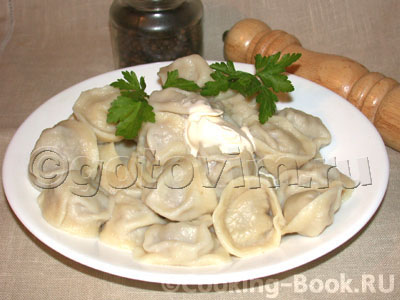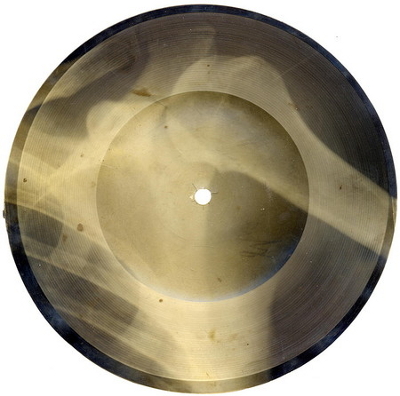И (часть вторая)
As students advance in their study of Russian, they eventually encounter the words тоже and также, both of which can be translated as “also.” The difference between the two is complex.¹ But if you are a really sneaky Russian student, then you can sometimes avoid both words by using и. For instance:
| Мама любит говорить по-русски. И папа любит говорить по-русски. | Mom loves to speak Russian. Papa also loves to speak Russian. |
| Мама ест рыбу. Она ест и курицу. | Mom eats fish. She also eats chicken. |
¹ The best description of the difference between the two words I've seen for beginners is in Richard Robins's first-year textbook Голоса, pp. 123-124. For a more complete description look at Nakhimovsky and Leed's “Advanced Russian,” which gets to the essence of the topic in terms of theme-rheme.
Как долго идти
Today we'll learn about asking “How long does it take to get to such-and-such a place.” Probably the easiest way is to use the phrase «как долго» “how long” followed by a unidirectional infinitive and the prepositions от/до. (От and до are usually used to mean “from” and “to” when talking about distances or times.) Of course, you will want to change the verb depending on the mode of transport:
| — Как долго идти от почты до аптеки? — Недолго. Минут пять. |
“How long does it take to walk from the post office to the pharmacy?” “Not long. About five minutes.” |
| — Как долго ехать от Москвы до Петербурга? — На скором поезде туда ехать всего восемь часов. |
“How long does it take to get from Moscow to St. Petersburg?” “On the express train it takes only eight hours.” |
| — Как долго плыть от Хельсинки до Стокгольма? — На пароходе семнадцать часов. |
“How long does it take to get from Helsinki to Stockholm?” “By boat seventeen hours.” |
| — Как долго лететь из Москвы в Париж? — Только три часа. |
“How long does it take to get from Moscow to Paris.” “Only three hours.” |
If you want to ask about how long it will take on a particular occasion, then of course you can use either the past or future as well:
| — Как долго будем ехать от Москвы до Петербурга? — Часов восемь. |
“How long will it take to get from Moscow to Petersburg?” “About eight hours.” |
| — Как долго вы ехали от Москвы до Петербурга? — Шестнадцать часов. Не было билетов на скорый поезд. |
“How long did it take to get from Moscow to Petersburg?” “Sixteen hours. There weren't any tickets for the express train.” |
The phrase «сколько времени» can replace «как долго» in all those sentences and will mean the same thing.
Пельмени
Пельмени (pelmeni) are these tiny, delicious, uniquely shaped, dumpling-like bits of dough filled with a combination of meat, onions and various spices. The key to creating a perfect пельмень is to get the shape right, because no matter how good your pelmeni taste, people won’t give you credit if they look sloppy or deformed or fall apart in one’s plate. It might be a bit tough at first but it’s very simple cooking, so a little practice is all that’s needed (unless you have extremely clumsy hands like me). The original, Russian recipe that most people use requires the meat to be a trio of beef, pork and lamb that is than mixed with onions and black pepper. Пельмени can be fried or boiled in either water or bouillon (usually boiled) and must be served with sour cream—it’s essential for the full eating experience. I don’t recommend you buy preprepared, packaged ones at the store; they never taste as good as homemade. Overall, it’s impossible not to like this plain Russian dish when it's done right.
| Sg | Pl | |
| Nom | пельмень | пельмени |
| Acc | пельмень | пельмени |
| Gen | пельменя | пельменeй |
| Pre | пельмeнe | пельменяx |
| Dat | пельменю | пельмeням |
| Ins | пельмeнeм | пельмeнями |

Пельмени topped with sour cream
Image taken from gotovim.ru
Here are some example sentences:
| B разных регионах Pоссии, пельмени готовятся чуть-чуть по-разному. | In the various regions of Russia pelmeni are made in slightly different ways. |
| Hикита съел больше, чем сорок штук пельменей, и теперь просит, чтоб я ему положил ещё. | Nikita ate more than forty pelmeni and is now asking me to give him more. |
| Cибирские пельмени очень популярны в русских ресторанах Лондона и Нью-Йоркa. | Siberian pelmeni are very popular in Russian restaurants of London and New York. |
| Mоя бабушка всегда готовит очень вкусные пельмени, когда к нам приходят гости. | My grandma always makes delicious pelmeni when we have guests over. |
И (часть первая)
After their first week of class all Russian students know that и means “and”:
| Мама и папа собирали картошку в колхозе. | Mom and Dad harvested potatoes at the collective farm. |
| Ксюша создала веб-сайт для русских невест и американских женихов. | Kseniya created a web-site for Russian brides and American grooms. |
It's so simple, why the heck would anyone bother to blog about it? Listen carefully, my children: the word и will save you grief in learning Russian. For instance, once you have learned the word и, you never have to learn a separate word for both! For instance…
| И мама, и папа говорят по-русски. | Both Mom and Dad speak Russian. |
See how easy that is! And what's wonderful is that it's not only nouns that can be coordinated that way, but also verbs, adverbs, and prepositional phrases:
| Папа и говорит, и пишет по-русски. | Dad both speaks and writes Russian. |
| Я говорю и по-русски, и по-испански. | I speak both Russian and Spanish. |
| Мой брат был и в Египте, и на Аляске. | My brother has been in both Egypt and Alaska. |
Actually the и can connect more than two words. In English, theoretically, we should only use “both” when coordinating two items, but sometimes when we are not thinking too carefully about what we are saying, we use it in constructions where more than two items are coordinated:
| Я говорю и по-русски, и по-испански, и по-английски. | I speak both Russian and Spanish and English. |
In Russian it's perfectly fine to coordinate more than two items with и, whereas in English if you use “both” in the context, rude pedants will correct you. I say “rude” because Mama taught us that we shouldn't correct the speech of other people unless they specifically ask us to.
Пластинка
Пластинка is a slang term for a грампластинка (gramophone record) and can be translated as record. Another popular slang term that is still around in both English and Russian is винил, which simply means vinyl.
Records were always a big deal in almost any household that had at least a tiny stray of affection for music and some type of a gramophone. Records of groups like the Rolling Stones, Pink Floyd and the Beatles were a huge deal amongst меломанов (passionate music lovers) because they were really hard to obtain, especially in the 60’s and most of the 70’s, the golden years of rock-n-roll. For example one of my relatives was allowed to occasionally travel abroad, and always brought back a couple of Led Zeppelin and Beatles albums for which people always offered him serious rubles. The main reason for this is because a lot of western music was considered to be ideologically inconsistent with the morals of the state and was largely frowned upon by the government. The biggest Soviet record label Мелодия (Melody), at first didn’t distribute certain albums and songs that were widely popular in the West at the time. In return, people found creative ways to get around this dilemma, like “burning” music onto records made out of large X-ray prints, known as запись "на костях" (recording "on the bones"). Fortunately by the mid 80’s, the restrictions began to faded off, finally warranting people to listen to what they liked and allowing numerous Russian rock bands like Кино and Зоопарк to go mainstream.
Photo of a record "on the bones." The music was recorded onto someone's X-ray print. I think I'll make one out of my grandfather's lung shots.
Here are some example sentences:
| B музыкальном магазине на Котовской улице вы можете купить диски, кассеты и старые пластинки. | At the music store on the Kotovskaya street you can buy discs, cassettes and old records |
| B фильме “Зомби по имени Шон” есть сцена, где два главных героя метают свои пластинки в большого уродливого зомби. | In the film “Shaun of the Dead” there is a scene where the two protagonists are throwing their records at a big ugly zombie. |
| B моей коллекции имеется много редких пластинок, за которые мне постоянно предлагают очень большие деньги, но я их не собираюсь пока продавать. | My collection includes many rare records for which I am constantly offered large sums of money, but I’m not planning to sell them for now. |
| Тело нашли на кухне под столом, убийца не взял ни денег, ни драгоценностей, нo супруга умершего сказала, что пропала пластинка Ramones "Ракета в Россию". | The body was found in the kitchen under the table, the killer did not take any money or jewelry, but the spouse of the deceased said that the Ramones "Rocket to Russia" record is missing. |
<< 1 ... 83 84 85 ...86 ...87 88 89 ...90 ...91 92 93 ... 158 >>
